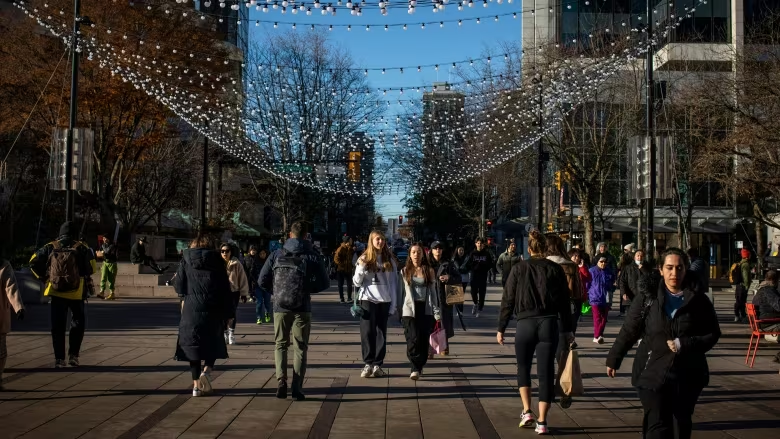
Canada's population hits record growth driven by temporary residents; concerns rise over housing and policy challenges. (CBC)
Canada is experiencing an unprecedented surge in population growth, setting new records largely due to an influx of temporary residents, particularly those enrolled in international student programs and temporary foreign worker initiatives.
During the third quarter, the country's population expanded by over 430,000 individuals, marking the quickest growth rate in any quarter since 1957. As of October 1, Statistics Canada estimated the population to be over 40.5 million, surpassing the total growth seen in any previous full year, including the record set in 2022.
This substantial increase is predominantly attributed to international migration, with approximately 313,000 non-permanent residents entering the country within the last three months. These individuals primarily held work and study permits, with a smaller number being refugee claimants.
However, this rapid population growth is raising concerns about housing affordability and straining the housing market, which has struggled to match the pace of demand with construction. The surge is also impacting political sentiments, with the ruling Liberals facing a decline in popularity due to concerns regarding affordability.
Bank of Canada deputy governor Toni Gravelle recently acknowledged the positive economic impacts of increased immigration, such as expanding the labor force and stimulating economic growth. Nevertheless, Gravelle cautioned that this surge is intensifying pressure on an already challenged housing market, resulting from zoning restrictions and a scarcity of construction workers.
A poll conducted by Leger revealed that a significant majority of Canadians believe immigration is placing strain on both the housing market and the healthcare system. Additionally, there has been a decline in the percentage of Canadians favoring increased immigration compared to the previous year.
In response to the influx of international students, the Liberal government has initiated measures to address potential fraud in the international student program. Immigration Minister Marc Miller announced increased financial requirements for applicants and warned of strict actions against questionable educational institutions recruiting international students if provinces fail to act.
Despite Canada imposing caps on the number of individuals granted permanent residency annually, there are no limitations on international student and temporary foreign worker programs. This has led to criticism from experts like Mikal Skuterud, an economics professor at the University of Waterloo, who advocates for a more balanced approach to the influx of temporary residents. Skuterud emphasizes the need for increased transparency regarding outcomes for international students and suggests caution in allowing students to work extended hours, potentially attracting more applicants.
Skuterud has also criticized the government for facilitating easier access for businesses to employ migrant workers, particularly through low-wage streams of the program. He suggests reinstating reforms from 2014 that aimed to restrict businesses' access to temporary foreign workers.
The significant surge in Canada's population, fueled by temporary residents, raises multiple concerns about housing, infrastructure, and policy adjustments necessary to maintain a sustainable influx of newcomers.















